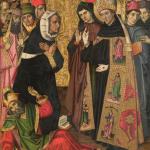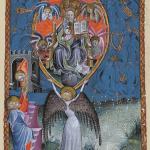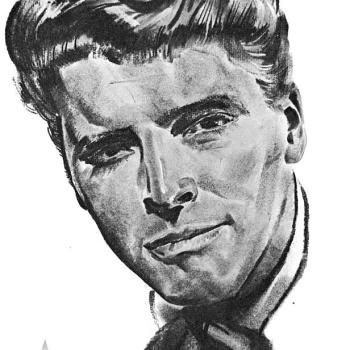This makes all the more sense when we consider what evangelicalism has meant in the American context over the last several decades. From the 1970s, evangelicalism—whatever it has now become—transformed into a veritable socio-political movement, transforming our politics. Their numbers swelled, such that we have seen the virtual death—or at least large-scale devastation—of mainline groups. Over the years, we have seen the rise of the Moral Majority, of televangelism, and, perhaps most importantly, of the union between puritanical American morals and imperialism in the realms of foreign policy and trade. Evangelicals overwhelming supported Reagan; they backed the Wars in Iraq and Afghanistan, even as they expressed outrage at the popularity of Bart Simpson. This odd combination has, in a way, become conservative politics in America, such that, even American Catholics are often indistinguishable from their evangelical counterparts on social and political questions. The evangelicalism of the last several decade has been a powerhouse of American culture, transforming it, birthing a new understanding of what it means to be a Christian from the US.
These views follow missionaries around the world; with American money, comes American views; vocabularies, modes of thought, modes of being, all of these come on their coattails. African social policies have been fundamentally changed by their influence. They brought the so-called “prosperity gospel.” Most of all, they injected a set of terms and ideas into the minds of people around the globe, bringing an odd mixture of liberalism, moral puritanism, and evangelical zeal to millions. I can point to an instance of this in my own life.
I once met a young evangelical. He was extremely nice, quite polite—all the things one would expect from one raised in the hallowed halls of American immigrant respectability. His family had come from a culture containing some of the world’s oldest Christians, but he knew nothing about that. This ignorance was less striking than what actually came out of his mouth. Every word, every action, was saturated in the contemporary lingo of the market: church planting, interfacing, connecting—you name it, he said it. Whatever had been of these thousands of years of tradition had been bulldozed. In its place, the religious equivalent of a parking lot ready to be blessed with a new Starbucks, wi-fi hotspots, and content creators.
Here we have a synecdoche. His family’s conversion had brought with it a sort of cultural erasure. What had taken millennia to build, to develop, to grow and sprout, was gone in the blink of an American eye. He was hip in his way, enveloped by the floods of American cultural-religious imperialism. In the wake of this deluge, little could be found of ancient traditions. But worse, little could be found that wasn’t disturbingly American.
It is in this sense that I believe it makes sense to think of evangelicalism as America’s imperial state church. Obviously, it has not been established as such; obviously, one needn’t be an evangelical to be a US citizen (though I imagine it would help). Still, evangelicalism has a legacy, a legacy both abroad and at home. Here it has transformed our politics, preaching a well-funded gospel undeniably caught up in our strangely America blend of moralizing capitalism. Abroad it has gone into poor places with bloated ecclesial elites, into post-Soviet nations in need of liberalization, and time and time again pushed a certain set of political priorities backed by cultural erasure. Goodbye Our Lady of Guadalupe, hello iPhone; goodbye icons, hello projector screens and rock n’ roll.
Does this mean every evangelical is merely some sort of US plant, a kind of agent in America’s global game? No, not really. But the operations of an ideology are always more robust than any individual practitioner—one need only ask the peoples of Bolivia and Brazil.













